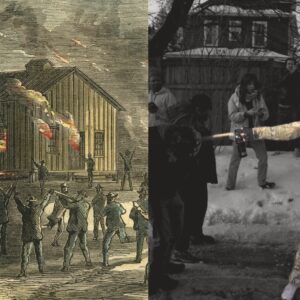
Alice Elliott Dark on the Moral Argument of Fiction
In Conversation with Mitzi Rapkin on the First Draft Podcast
First Draft: A Dialogue of Writing is a weekly show featuring in-depth interviews with fiction, nonfiction, essay writers, and poets, highlighting the voices of writers as they discuss their work, their craft, and the literary arts. Hosted by Mitzi Rapkin, First Draft celebrates creative writing and the individuals who are dedicated to bringing their carefully chosen words to print as well as the impact writers have on the world we live in.
In this episode, Mitzi talks to Alice Elliott Dark about her new novel, Fellowship Point.
Subscribe and download the episode, wherever you get your podcasts!
From the episode:
Mitzi Rapkin: Can you explain more what you mean by a central argument in fiction?
Alice Elliott Dark: I think most fiction makes some sort of an argument, it could be called the central theme, which I think is from the reader point of view. But I think from the writer point of view, you’re making a case, you know, you’re making a case for people are good, or people are evil, or money is neutral, or else it’s something that can be really destructive. You’re making an argument about your worldview through the book.
I think most books have a central argument and then minor arguments alongside. Those are the subplots that are like the minor arguments that buttress the central argument and then intersect at a certain point. It took me a while to see that when I was learning how to write and teaching, too, but once I saw that there is a case being made, then that made it a lot easier to decide what was relevant to the case and what was not.
***
Alice Elliott Dark is the author of the novels Fellowship Point and Think of England, and two collections of short stories, In The Gloaming and Naked to the Waist. Her work has appeared in, among others, The New Yorker, Harper’s, DoubleTake, Ploughshares, A Public Space, Best American Short Stories, and Prize Stories: The O.Henry Awards, and has been translated into many languages.
First Draft: A Dialogue on Writing
First Draft: A Dialogue on Writing is a literary podcast produced and hosted by Mitzi Rapkin. Each episode features an in-depth interview with a fiction, non-fiction, essay, or poetry writer. The show is equal parts investigation into the craft of writing and conversation about the topics of an author’s work.



















